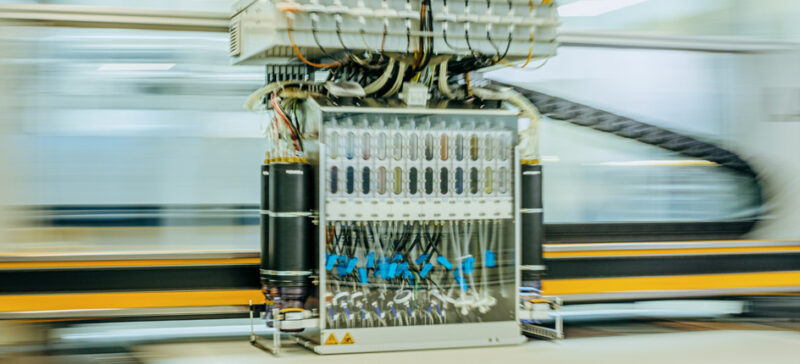Member News
Zühlke carries out life cycle assessment on behalf of Lantal

Zühlke, a company based in Schlieren in the canton of Zurich, was engaged by the carpet manufacturer Lantal to carry out a life cycle assessment (LCA), with the aim of finding out more about the environmental impact of manufacturing carpets for the aviation industry.
For the analysis, traditional aircraft carpet production processes were compared against the new digital deep-dyed technology, which uncovered significant differences in terms of environmental aspects and impacts in relation to the weight of the products. The digital deep-dyed process performed better because the carpets produced in this way are more lightweight, meaning that the carbon footprint is lower and water consumption can be reduced.
“The key learning from the life cycle assessment is that the weight has by far the biggest impact on the ecological footprint of the carpet”, as the innovation service provider Zühlke writes in a press release, before adding: “A 35 percent lighter carpet results in 35 percent less CO2 emissions across the carpet’s life cycle”.
For the life cycle assessment, the ecological footprint of Lantal’s carpet production and dyeing processes was examined along the entire production chain, from extracting the raw materials all the way through to final disposal. This end-to-end approach is referred to as “from cradle to grave”.
As part of the analysis, it was also determined that the international company based in Langenthal in the canton of Bern has successfully cut emissions related to internal production processes by 70 percent. ce/heg